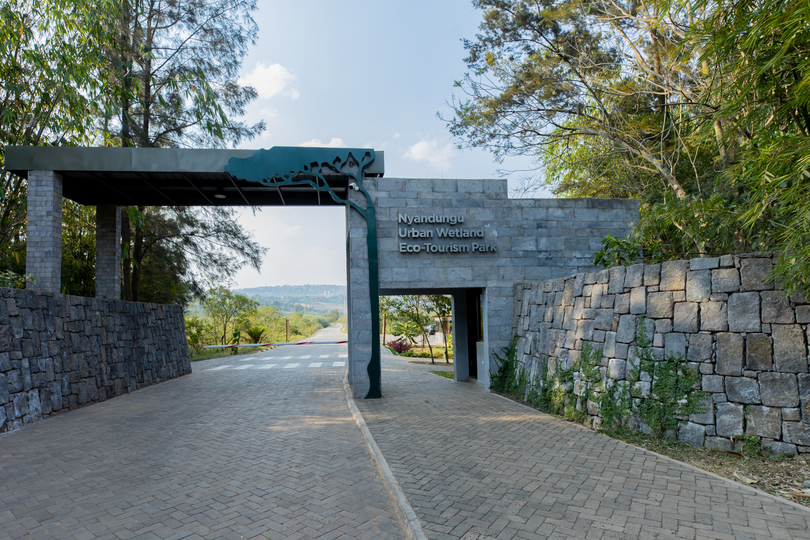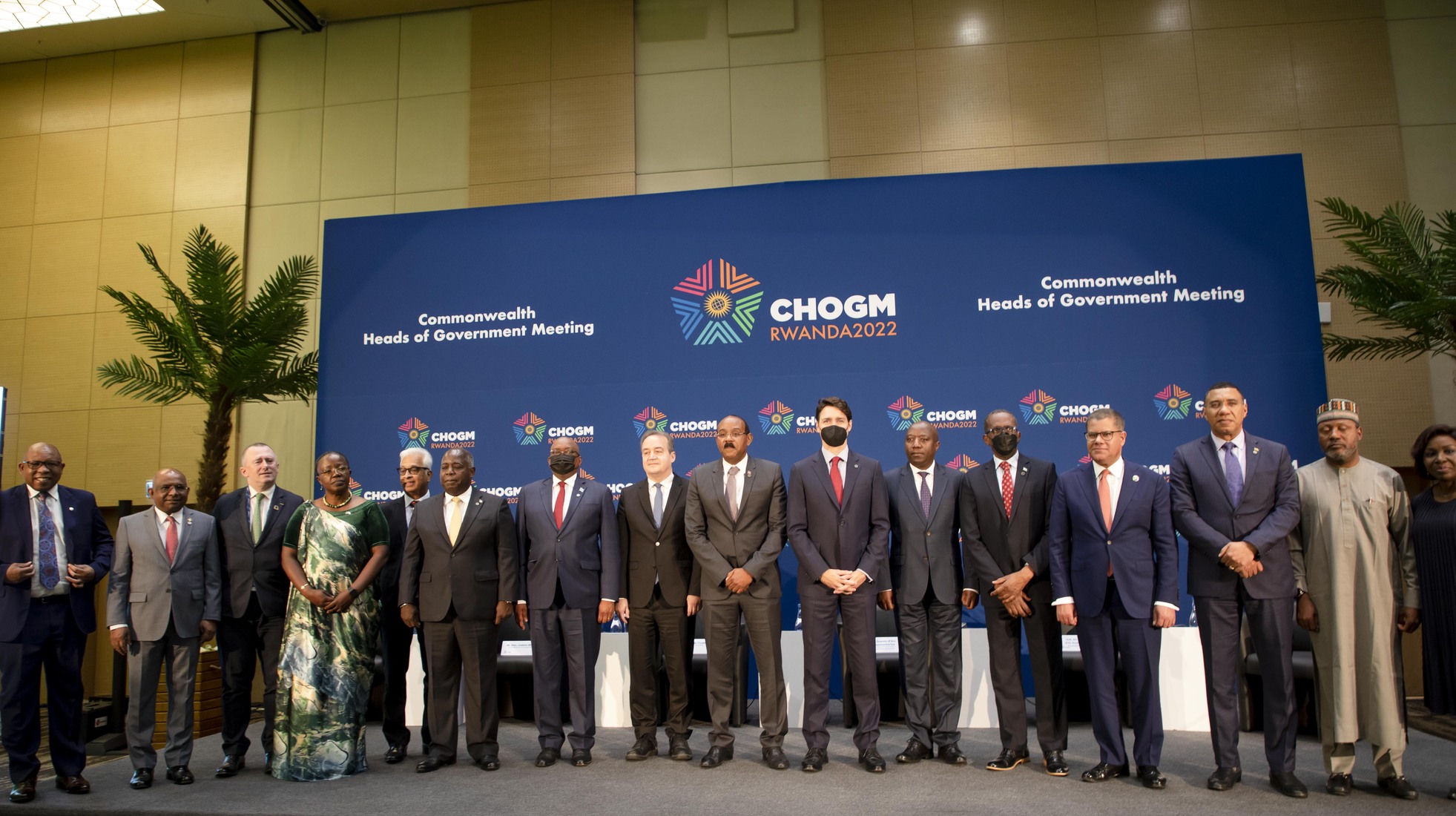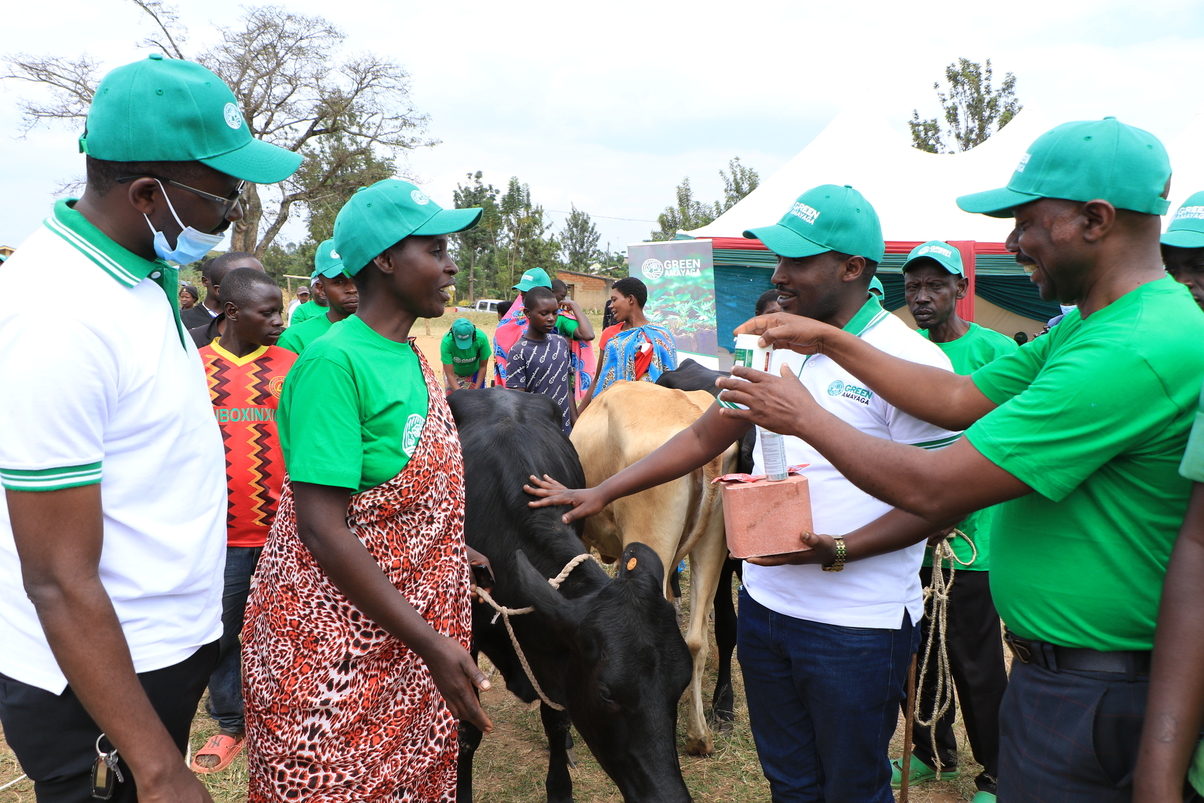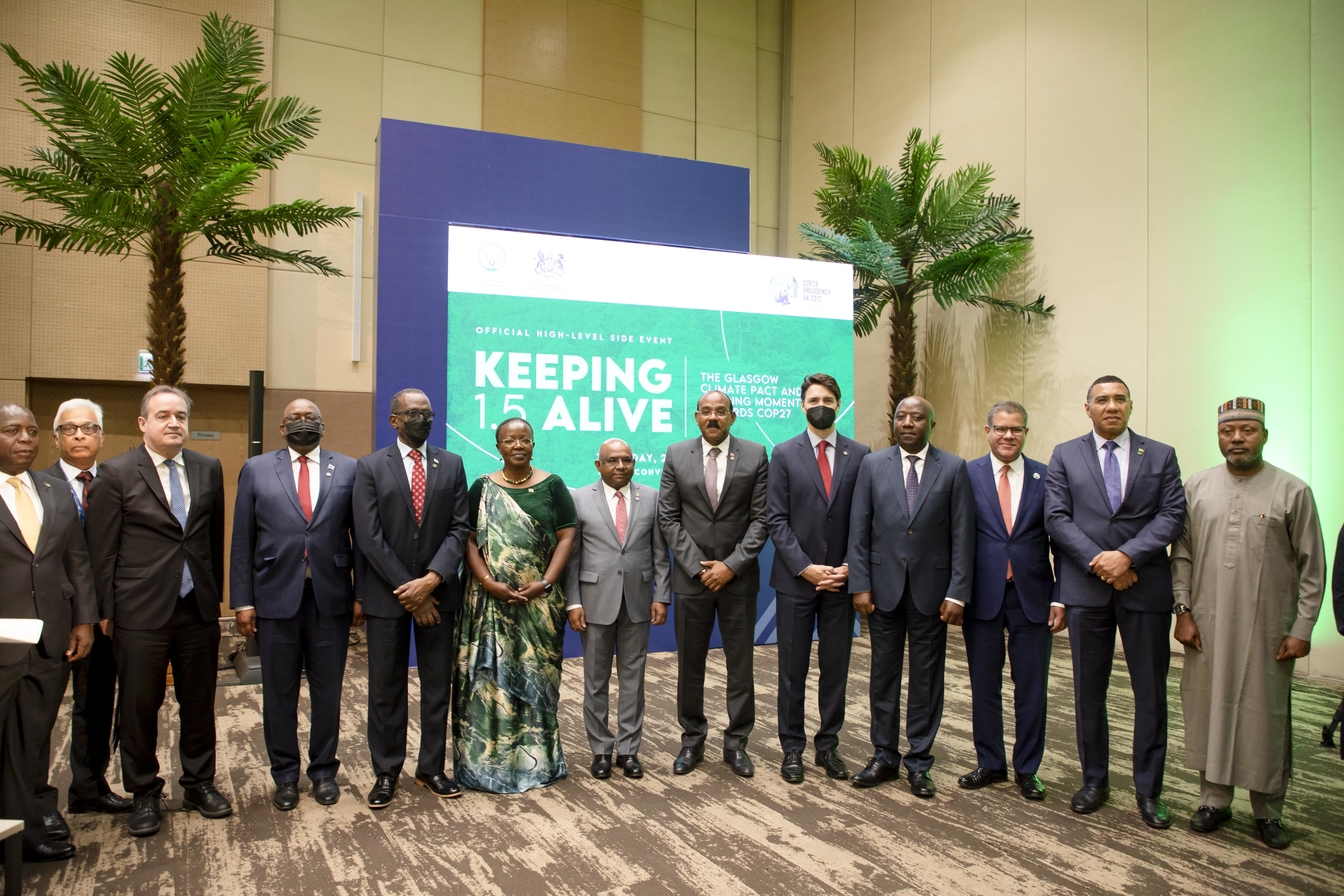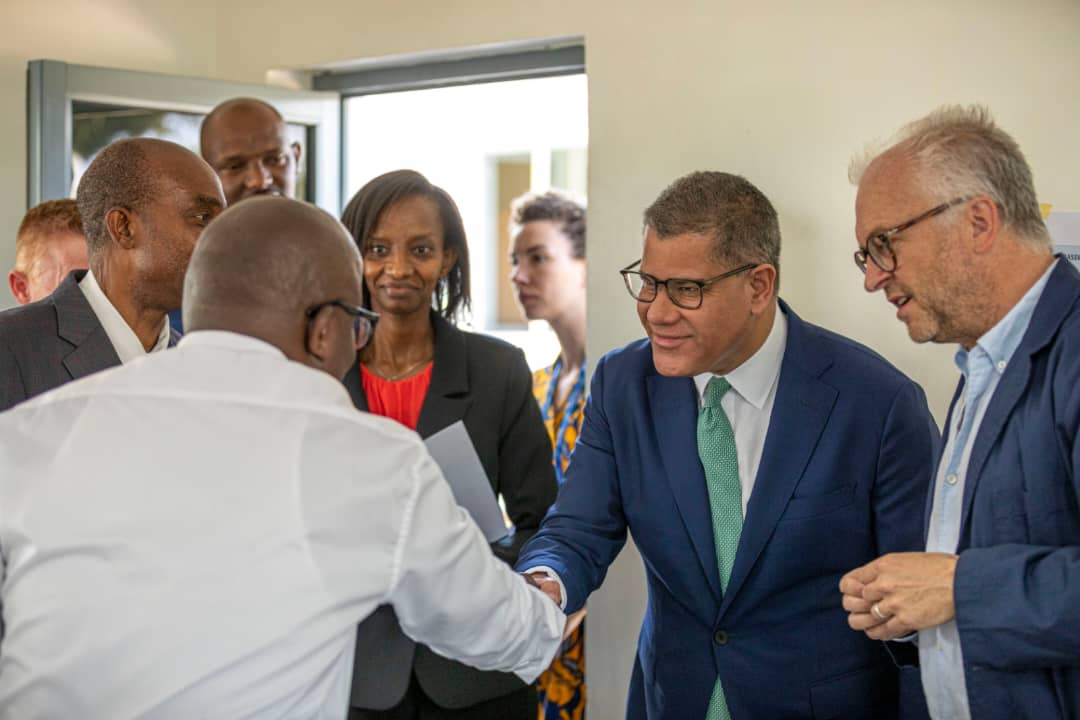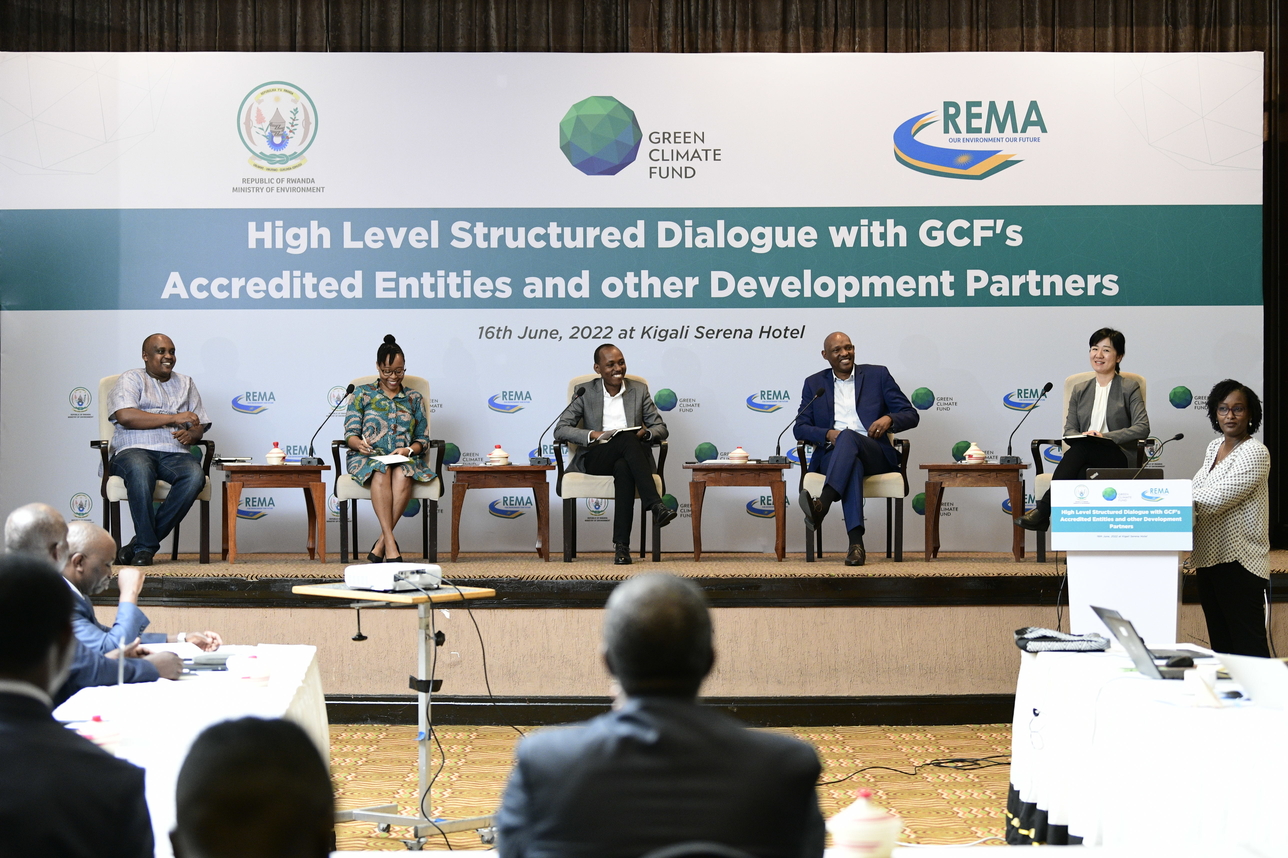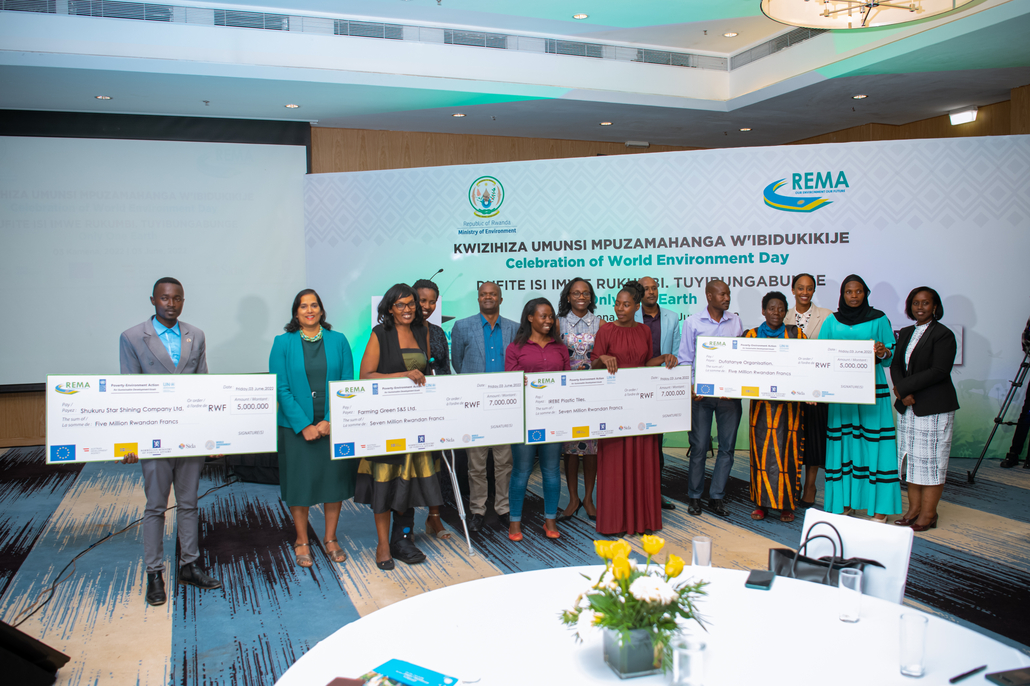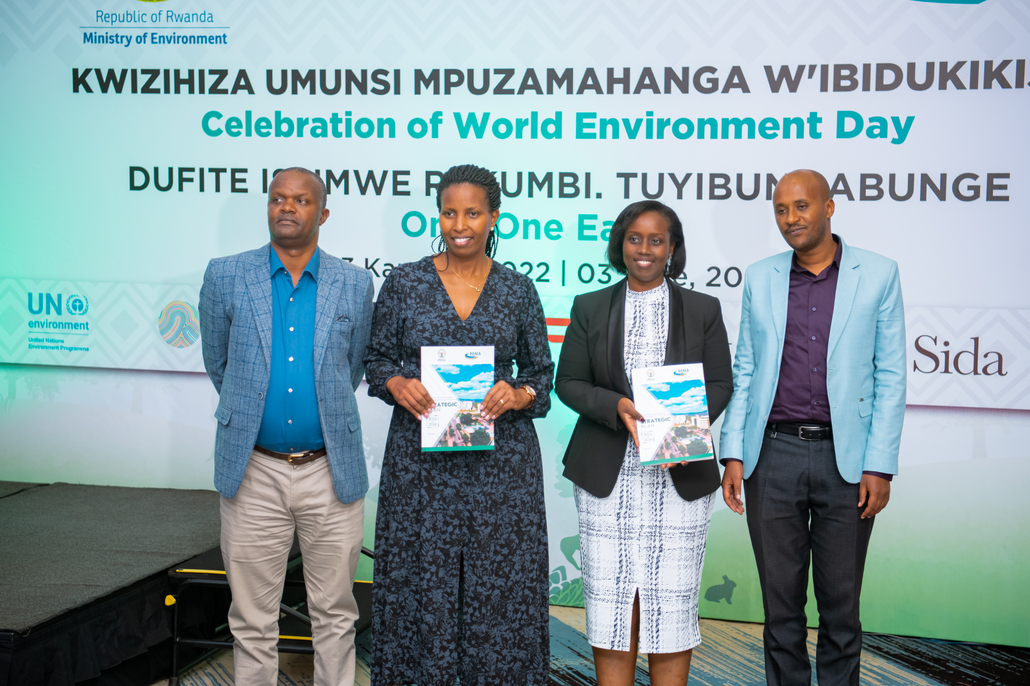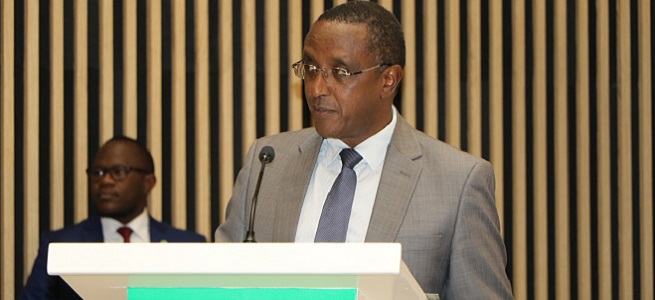
Remarks by Minister of Environment at Launch of National Environment Week
Fellow Ministers,
One UN Resident Coordinator,
Private Sector Federation Chairperson,
Distinguished guests,
Ladies and gentlemen
Mwaramutse!
It is a pleasure to be with you this morning as we officially launch this year’s National Environment Week. I wish to thank you all for joining us, and I look forward to a lively conversation about how we can join hands to beat plastic pollution.
Today’s conference on addressing the challenge of plastic waste is timely.
Around the world, almost 450 million tons of plastic is produced every year. It’s especially troubling that 40 percent of plastic produced is packaging, used just once and then discarded. The scale of the problem can perhaps best be seen in the number of plastic bottles we use: globally, nearly a million plastic beverage bottles are sold every minute.
Of this plastic waste, an estimated 13 million tons enter the world’s oceans each year. By 2050, it is estimated that there will be more plastic than fish in the oceans. Most plastics are made from fossil fuels like crude oil, which contributes to climate change and estimates for the time it takes plastics to break down range from 450 years to never. It’s clear that plastic waste has become an environmental catastrophe we can no longer ignore.
Since Rwanda introduced the law to prohibit the manufacture, importation, use and sale of polythene bags a decade ago, we have seen remarkable progress and we are pleased that other countries, especially our neighbours the region, are following suit.
Today, the challenge we face is no longer plastic bags alone, but all plastics, especially those used once and thrown away. These disposable plastics are known as ‘single use’ plastics.
Single use plastics are damaging our rivers, wetlands, and farmlands. They also pose a risk to our health. Like all rubbish, plastic waste blocks drains and waterways. This increases the chances of flooding and provides the breeding grounds for mosquitoes, raising the risk of malaria and other water borne diseases.
This year, the Ministry of Environment and partners have been working on new ways to improve plastic recycling and reduce plastic waste. We are in the process of revising the plastics law to reduce single use plastics and improve the efficiency and effectiveness of plastic recycling in the country.
As a first step, the Ministry of Environment and its agencies have committed to no longer using disposable plastics. We have installed water dispensers and have replaced bottles with glasses and cups in our offices and meetings. I wish to thank government institutions which have joined this campaign and taken the “Beat Plastic Pollution” pledge and I hope other institutions will join.
I encourage everyone to invest in sustainable alternatives to plastics that are better for our health and the environment. Some of the biggest sources of plastic waste include bottles, straws, cups, plates and cutlery - the kind you often see at meetings and traditional gatherings like weddings. It’s time to make the switch and say no to single use plastic. For example, when you are at a restaurant, tell the staff that you don’t want a straw in your glass of juice or disposable cutlery. If you like takeaway coffee, bring your own mug.
In summary, if you can’t reuse it, just refuse it!
Today, we are hosting one of the first meetings at this venue without plastic bottles. Not only is it possible to stop using disposable plastic, but such simple changes in our behaviour can have a big impact. Ending plastic waste will protect our health and environment, save money and reduce the burden on the country’s waste management system.
Over the next week, a number of activities are being held as part of National Environment Week and World Environment Day. I hope you will join us for the Beat Plastic Pollution walk during Car Free Day this Sunday, and the many other events taking place during the week.
I wish to conclude by encouraging the private sector to take advantage of the opportunity to develop solutions that beat plastic pollution. Just as local and regional companies answered the call when we banned plastic bags, I have no doubt that our private sector is up to the challenge and can profit greatly.
The Ministry of Environment and agencies are ready to support government institutions, the private sector and civil society to make the most of the transition away from disposable plastics. And I am happy that today we are not going to leave any plastic behind.
I thank you for joining us today and for your kind attention.
Topics
More posts
Nyandungu Eco-Park Opens to the Public
From a degraded wetland to an educational and recreational eco-park in the heart of Rwanda’s capital city, Nyandungu is now open to the public.
Commonwealth Leaders Commit to Keeping 1.5 Climate Goal Alive
On the sidelines of the Commonwealth Heads of Government Meeting in Kigali, leaders from across the Commonwealth have committed to working together to…
Green Amayaga Project steps up to improve communities’ livelihood in Rwanda’s Amayaga Region
The Rwanda Environment Management Authority (REMA) through the Forest Landscape Restoration in Amayaga Region (Green Amayaga) Project, has on 29th…
Gabon’s Minister of Forests, Oceans, Environment and Climate Change visits Nyandungu Eco Park
The Gabon’s Minister of Forests, Ocean, Environment and Climate Change, Professor Lee White has on 24th June 2022 visited Nyandungu Eco Park, which…
Commonwealth leaders meet in Kigali to discuss ways of keeping the 1.5-degree goal alive
The Governments of Rwanda and the United Kingdom together with the Presidency of the United Nations Climate Change Conference (COP26) have on 23rd…
VIP visit for Africa’s clean cold centre shows how we can keep alive the goal of 1.5 Degree Celsius
COP President, the Rt. Hon. Alok Sharma MP, visited the Africa Centre of Excellence for Sustainable Cooling and Cold-chain (ACES) during his…
REMA meets with representatives from GCF accredited entities and other development partners to discuss climate finance
The Rwanda Environment Management Authority (REMA), the Green Climate Fund (GCF) accredited entities and other development partners met today 16th…
REMA awards outstanding green innovations and investments at the World Environment Day
The Rwanda Environment Management Authority (REMA) in partnership with United Nations Development Programme (UNDP) awarded youth and women with…
Rwanda celebrates the World Environment Day with commendable achievements in Environment Protection
On 3rd June 2022, the Government of Rwanda and development partners celebrated the World Environment Day (WED) which is celebrated annually on 5th…
